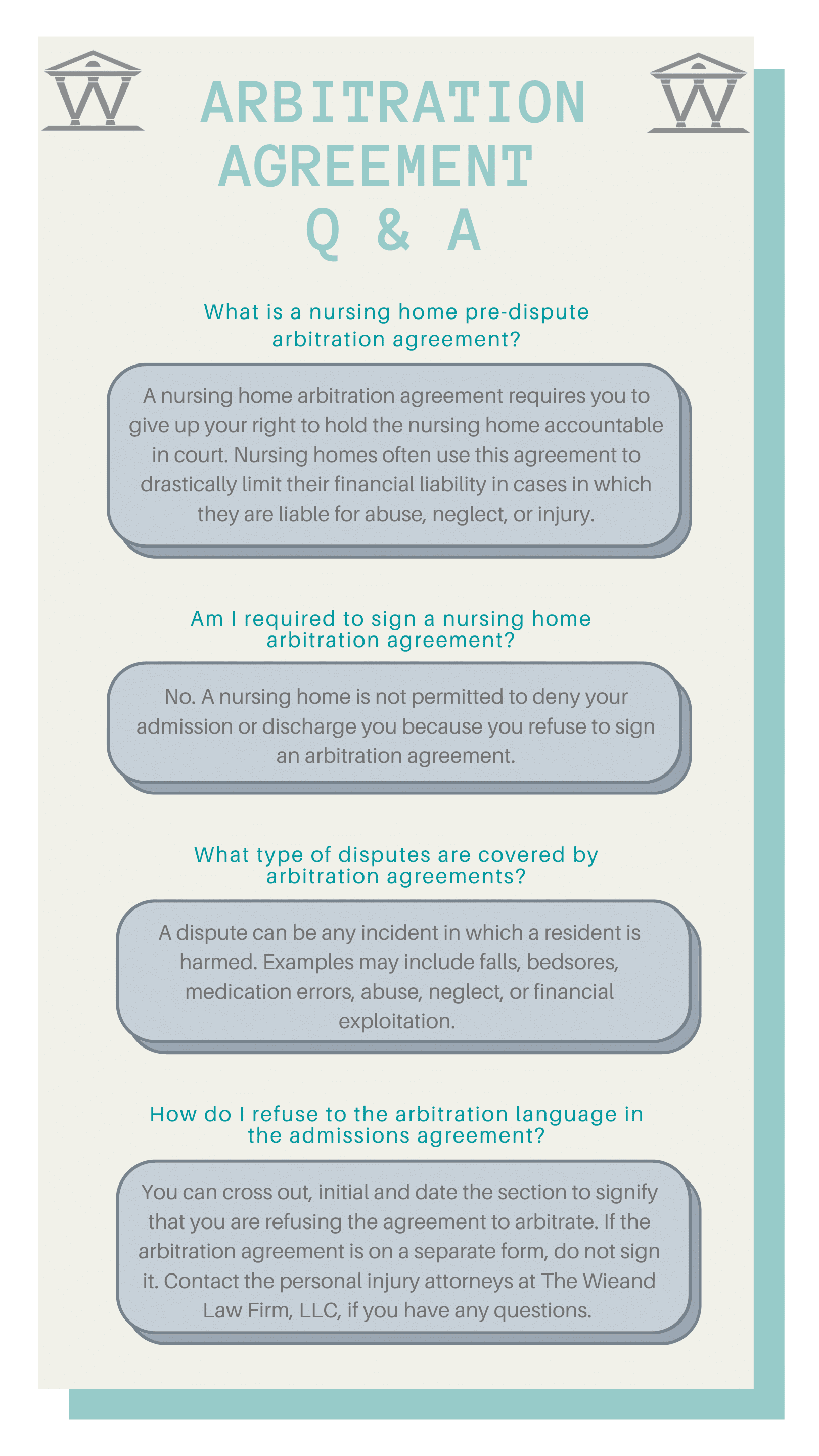Nursing home neglect lawyers Philadelphia trusts are encouraged by the Supreme Court’s decision this week to refuse to hear arguments in a case that sought to allow nursing homes to require pre-dispute arbitration agreements. This decision clears a path for enforcement of tough new arbitration regulations aimed at protecting the rights of nursing home residents. According to a nursing home neglect lawyer Philadelphia depends on, these regulations will offer safeguards to residents in their rights to pursue a jury trial for nursing home abuse and neglect.
The Northport Health Services of Arkansas LLC (d.b.a. Springdale Health and Rehabilitation Center) v. United States Department of Health and Human Services case arose from a 2019 Centers for Medicare & Medicaid Services (CMS) rule prohibiting nursing homes from requiring residents to sign binding arbitration agreements. Previously, nursing homes would require nursing home residents to sign these agreements as a condition of admission to the facility, or as a requirement to continue receiving care. Nursing homes are still permitted to provide voluntary arbitration agreements.
New Federal Guidance Initiated
On Oct. 24, 2022, surveyors will follow new guidance to monitor nursing homes for compliance. This compliance will be reviewed from the rule’s effective date, September 16, 2019 through present day.
While many nursing homes are presenting arbitration agreements as voluntary, consistent with the 2019 rules, they’re not necessarily adhering to the new the interpretive guidelines. The guidance establishes two brand new tags:
- F847 Enter into Binding Arbitration Agreements
- F848 Select Arbitrator/Venue, Retention of Agreements.
These new F-tags require that nursing home staff explicitly inform a resident or family signing an arbitration agreement is voluntary and ensure that any agreement is explained in a “manner that he or she understands, including in a language the resident and his or her representative understands.” Additionally, nursing homes must allow residents 30 days to rescind a signed arbitration agreement.
Surveyors will seek to determine through both interview and record review that the resident or their representative understood the contents of the arbitration agreement. Additionally, surveyors will be reviewing the resident’s medical record to determine health care decision-making capacity at the time the agreement was signed.
Nursing home neglect lawyers Philadelphia counts on to litigate high value neglect cases have seen many situations whereby a resident who lacked capacity to for health care decisions signed a pre-dispute arbitration agreement. Residents with cognitive deficits are frequently strong-armed to sign these documents even when they don’t have the ability to comprehend what they are signing. The new regulations will hold nursing homes accountable for these disreputable tactics.
Arbitration Agreements for Transferred and Discharged Residents
The Centers for Medicare and Medicaid Services (CMS) also directs surveyors to closely investigate when resident who refused to sign an arbitration agreement was subsequently transferred or discharged. Surveyors will be asked to determine the reason for transfer or discharge of any resident who has refused to enter into a binding arbitration agreement to ensure that the transfer or discharge was appropriate. Nursing home neglect attorneys recognize that unscrupulous facilities have tried to illegally discharge residents who refuse to comply with signing arbitration agreements.
Arbitration Agreements Criticized
Nursing home owners and operators strongly support the use of arbitration agreements, touting quicker claims resolution times with lower associated costs. But such clauses have faced great criticism from the nursing home neglect lawyers Philadelphia depends on to support victims of nursing home abuse and neglect. The nursing home abuse attorneys at the Wieand Law firm, LLC recommend that residents and their representatives avoid signing pre-dispute arbitration agreements with a nursing home. By signing the agreement, the resident essentially gives up their constitutional right to go to court for a dispute. Additionally, arbitration agreements may limit the resident’s ability collect evidence needed to prove neglect or abuse.
Nursing home neglect lawyers Philadelphia trusts knows that some facilities use the confidentiality language contained in arbitration agreements as a way to hide poor care from the public. Nursing home abuse attorneys dissuade residents or their families from signing arbitration agreements because they can drastically limit the nursing home’s financial liability when they act in a way that results in serious injury for a nursing home resident.
Nursing home neglect lawyers anticipate new legal challenges regarding enforceability of arbitration agreements to arise once the new guidance is enacted.
What Types of Disputes are Covered by Arbitration Agreements?
A dispute is considered any event in which a resident is hurt or neglected. Examples of a dispute include when a resident:
- Develops bedsores from neglect
- Falls and fractures due to caregiver negligence
- Is physically assaulted by another resident
- Is seriously harmed when provided with the wrong medicine or wrong dosage of medication
- Is sexually assaulted by a staff member or other resident
- Contracts a preventable infection that results in serious illness or death
Signing a pre-dispute arbitration agreement may restrict a resident’s ability to file lawsuit against a nursing home for any of these instances of wrongdoing.
Contact the Nursing Home Neglect Lawyers Philadelphia Trusts at the Wieand Law Firm, LLC
If you or a loved one has been harmed by nursing home neglect or abuse, contact the experienced attorneys at the Wieand Law Firm, LLC. Our team of nursing home neglect lawyers offer a free consultation to review your case and help you understand your legal options. Our services are offered on a contingency fee basis, meaning that you never pay a fee for our services unless we win money for your case. Call 215-666-7777 today or send us a message on the online form to speak directly with an attorney.

